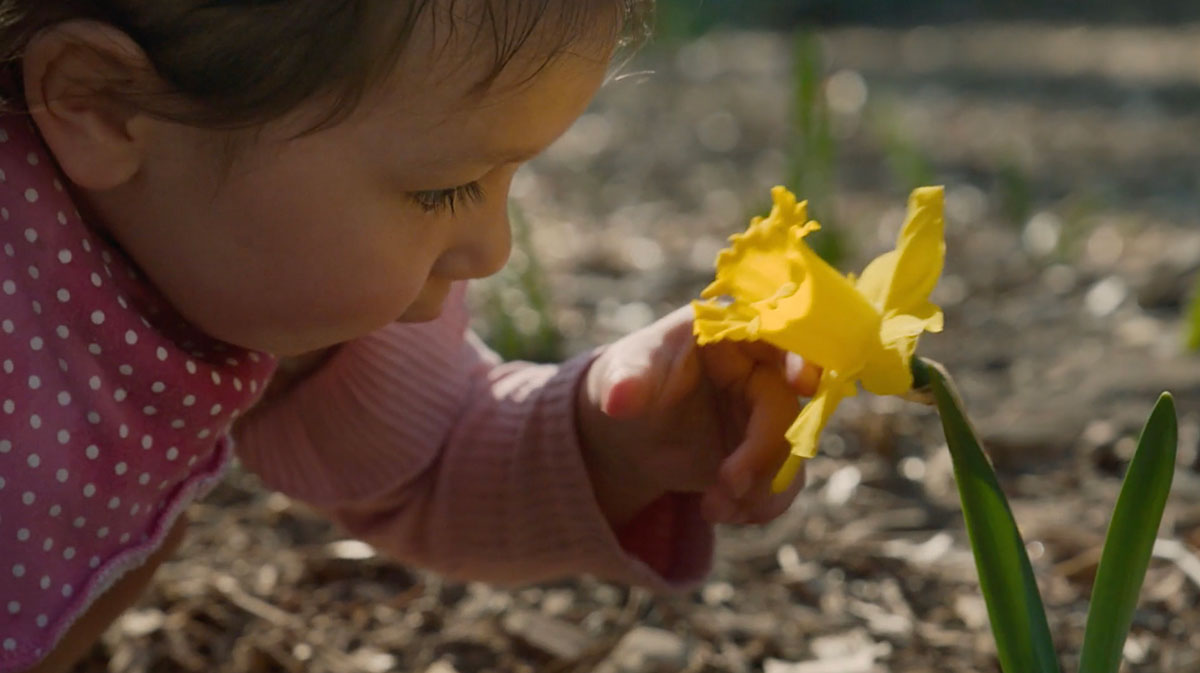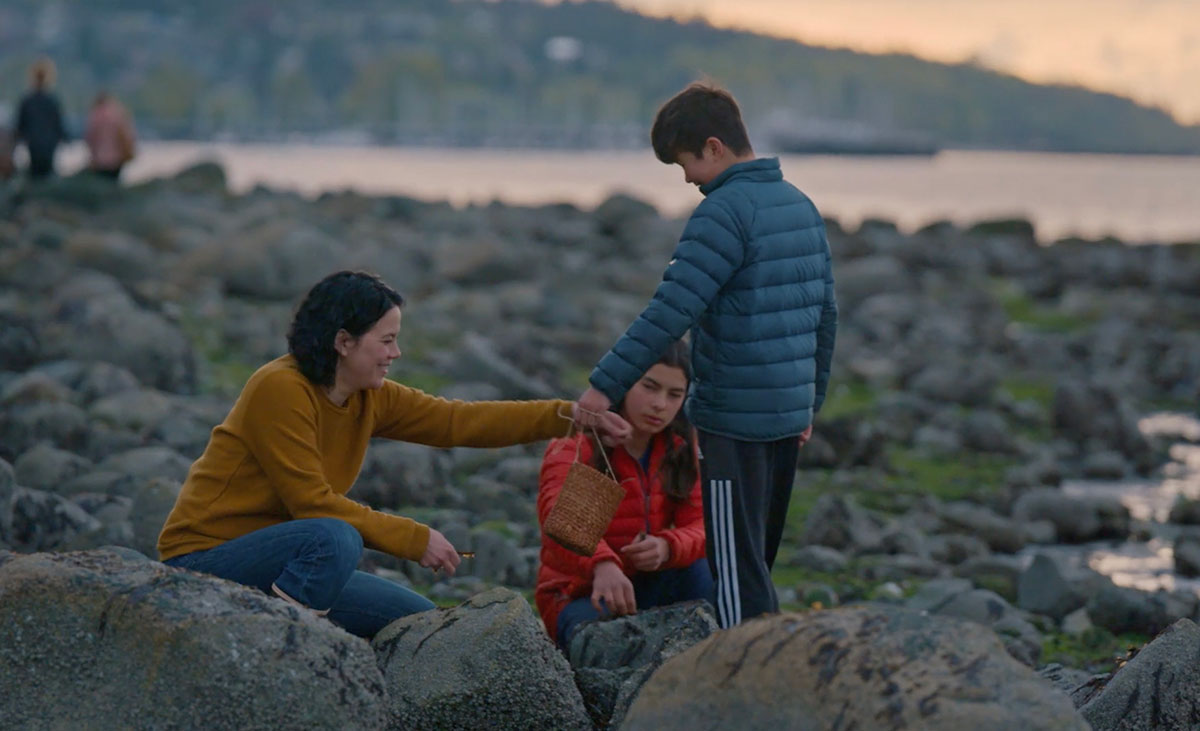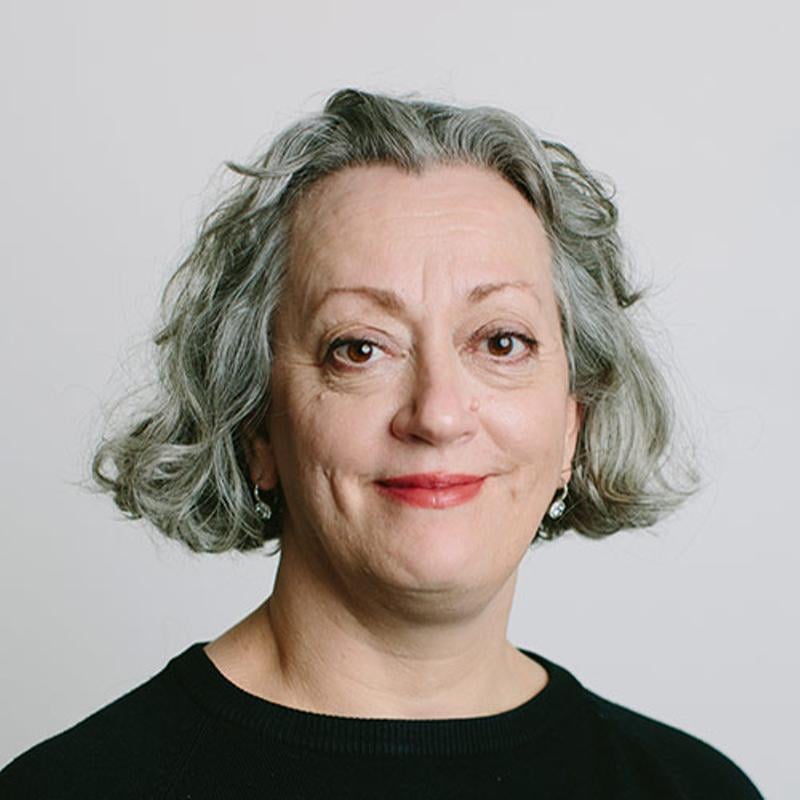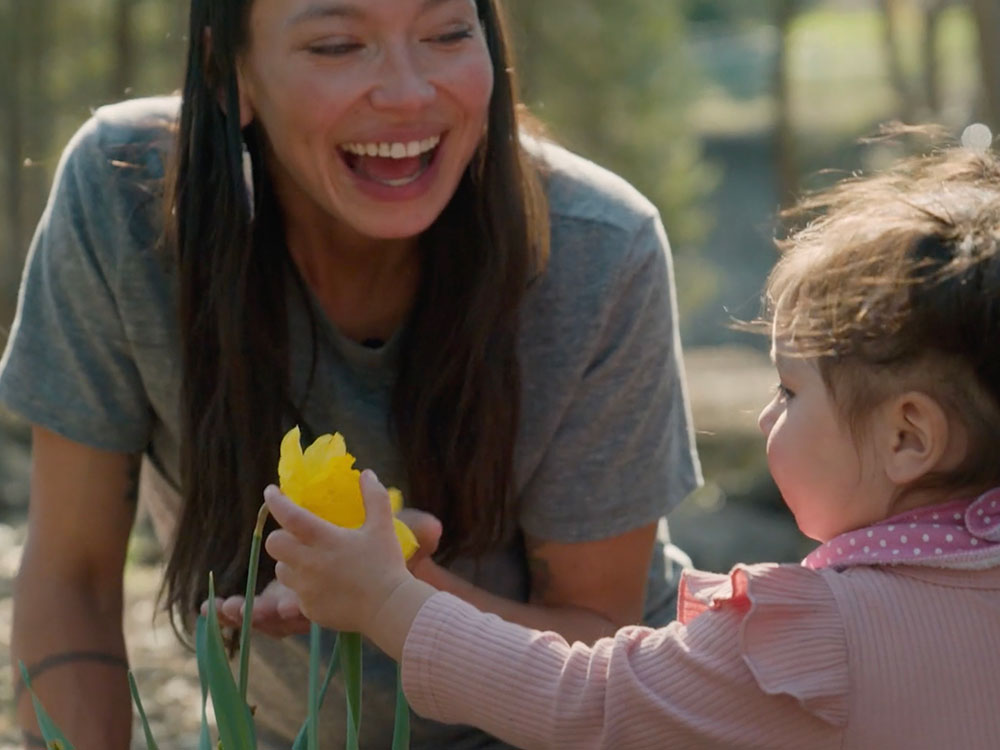The population of the Earth reached eight billion souls last week.
A new documentary about choosing not to add to this number airs tonight on CBC at 9 p.m. It is also streaming on CBC Gem starting today.
The decision not to have children forms the bulk of director Victoria Lean's The Climate Baby Dilemma. Along the way, a number of other issues are addressed. Things like racism, genocide, justice and the hard-fought struggle for hope. The film travels across North America, combining interviews with experts and ordinary folk, as they contend with one of the most intractable questions of the day: is it right or moral to bring children into a collapsing world?
Often the weight of making and carrying out the decision not to have a baby falls upon young birthing parents. Of the people interviewed in the film, many are in their late teens and early 20s. At age 22, Payton Mitchell is extremely clear about her choice. As she states at the film’s outset, “Growing up, I really thought that having kids would be the most important part of my life.”
Mitchell suffered from severe asthma when she was younger, due in part to the combination of oil, coal and natural gas companies in her hometown in southern Ontario. The effects of living in a heavily industrialized area had a profound impact on her and her family. “You can’t have a booming fossil fuel economy and safe and happy families,” she says in the film.
The responsibility of parenting extends far beyond simply deciding to have a baby. Mitchell is explicit about the long-term ramifications. “Would they be safe to live in a world where there are climate catastrophes? I don’t feel comfortable bringing children into a world if I don’t know how I can take care of them because that’s your main role as a parent.”
Healthy childhoods and parents’ ability to protect their kids have forefronted issues of climate justice. But the repercussions of a rapidly warming planet have led the current generation of would-be parents to ask two urgent questions: should they have children? And can they?

As a number of recent studies have shown, birth rates, fertility and sperm counts have fallen precipitously. Extreme heat and exposure to toxic smoke from wildfires increase rates of miscarriage.
Science communicator and writer Britt Wray (author of Generation Dread: Finding Purpose in an Age of Climate Crisis) is well aware of these trends. Generation Dread delineated many of the issues that younger people face when it comes to making reproductive choices. Leaving aside things like the astronomical cost of raising a family, Wray explains that a growing number of people are connecting climate change to future decisions about their lives and family.
Wray functions as an interlocutor throughout the film, asking questions not only of other people, but also of herself, as she weighs the decision to have a baby with her partner.
As part of her research, Wray and her colleagues interviewed 10,000 young people in 10 countries about their feelings on the state of the world. The statistics were, to put it mildly, startling: 56 per cent of the people surveyed said that they felt humanity was doomed. And 39 per cent said that the climate crisis made them hesitant to have children. Both of these numbers correlated to “a sense of being betrayed by government and lied to by leaders,” leading to what Wray terms “institutional betrayal.”
As younger people around the world scream for change, some are turning the decision to forego having children into a political act.
Emma Lim, a student at McGill University in Montreal, helped organize events around the school climate strike initiated by Greta Thunberg. But her environmental activism took a decidedly personal direction when she started the “No Future, No Children" pledge.
As she states in the film, forcing world leaders to act demands a level of personal sacrifice. Actions like No Future, No Children aren’t simply about individual choice, but about making explicit just how high the stakes really are.
But even as the next generation of parents appears profoundly uncertain about creating more people on an already overcrowded planet, a number of cultural and sociological movements are hell bent on removing reproductive choice. The anti-abortion forces in the U.S. are some of the most draconian. But in other parts of the world, governments have begun to act on raising their nation’s birth rates.
Global powerhouses like China are not alone in advocating for women to have more children. Japan, the Philippines and other nations have introduced incentives to increase birth rates.
But even in the most unlikely places, the number of children has continued to drop. The birth rate of American evangelicals, for example, have fallen dramatically in recent years.
Even as many people are profoundly uncertain about bringing a child into a world that seems intent on barrelling full-tilt towards destruction, governments are weighing the economic and sociological ramifications of aging populations and a depleted workforce. A clash between these two things might be inevitable.
Any mention of overpopulation and spectres from the past emerge, often in the form of Malthusian predictions or draconian population control. But these older ideas have been supplanted by other, perhaps, even darker forces, as the push to make more humans becomes more about economics and power. A recent article in Time summed it up succinctly:
“First, focusing on numbers alone treats people as commodities, stripping them of their rights and humanity. We have too often seen leaders setting targets for population size or fertility rates, and the grievous human rights abuses that result.
"Let’s be clear: When we talk about the ‘problem’ with fertility rates or an ‘ideal’ population size, we are really talking about controlling people’s bodies. We are talking about asserting power over their capacity for reproduction, whether by influence or by force, from policies where families are paid to have more children, to egregious violations like forced sterilization, often suffered by ethnic minorities, Indigenous peoples, and people with disabilities.”
Movements such as Birth Strike, which originated in the U.K., had their message misconstrued as being akin to a kind of civilizational suicide. The dialogue around choosing not to have children spiralled into racist discourse about the fear of people in developing nations overtaking western nations. The dog whistle about disappearing white people wasn’t long in coming from the likes of Fox News.
Jade Sasser, associate professor from University of California Riverside, has dedicated much of her work to disabusing the notion that population is at the root of the environmental crisis. As she explains in an interview with Wray in the film, “Our population size does not correlate to the way that we consume resources and pollute the planet.” In other words, the countries with the greatest rate of population growth, like sub-Saharan African countries, have the lowest rate of carbon emissions. Meanwhile the U.S. has five per cent of the global population and yet contributes to about a quarter of the total carbon emissions in the world.
As Sasser explains, the issue of climate change often runs a distant second to the racism and intolerance that is happening right here, right now. For people struggling to survive daily, climate catastrophe remains to be perceived as a relatively distant, abstract idea. For people who have already experienced genocide, not having children is also a fundamentally emotional decision, but in a very different way.
As Anishinaabe artist and activist Sarain Fox states, having a child is a conscious political act. “I never met an Indigenous person who didn’t want to have kids because they thought the world was ending,” she says. For Indigenous people who lived through the apocalypse of having their culture eradicated, the decision to have children and pass on cultural knowledge is a revolutionary act. “I think it’s the only way to heal from genocide.”
Fox puts it bluntly about the people who have lived outside of genocide and never had to question their right to a safe future, a career, a life. For those folks, living in uncertainty and precarity is a new experience. It is a not an easy one. Britt Wray’s research into the profound psychological impacts on humans created by climate instability, including pre-traumatic stress, ecological anxiety and anticipatory grief often coalesce around the idea of allowing another human to suffer, especially a young and vulnerable one.
But strangely enough, this might actually be a good thing. Solidarity comes from people sharing their concerns, fears and coming together to act collectively. Conceivable Future is an organization that takes direct action by facilitating house parties where people can talk about these issues with others. The scenes in the film where people engage with others facing the same fear are deeply heartening. Because action helps. And often, it is the only thing that does.

The ethical implications of bringing a child into a deeply compromised world affected Severn Cullis-Suzuki in direct fashion. The daughter of famed environmentalist David Suzuki, Cullis-Suzuki came to fame when she gave a speech at age 12 at the 1992 Earth Summit in Rio de Janeiro, Brazil.
Her speech is perhaps even more relevant today. “I used to go fishing in Vancouver, my home, with my dad until, just a few years ago, we found the fish full of cancers. And now we hear of animals and plants going extinct every day, vanishing forever. In my life, I have dreamt of seeing the great herds of wild animals, jungles and rainforests full of birds and butterflies, but now I wonder if they will even exist for my children to see.”
As she says in the film, she is still being contacted by people today who were affected by her words. Her decision to have a child was not greeted happily by her father, until she explained that having a baby meant an even deeper commitment to ensuring a better world for the coming generation. “This is why we’re here,” she says. “We’re here to provide for the future.”
We are living in a rising tide of catastrophic change. Whether people can find a way to work together and create means of active resistance, action and communal resilience remains to be seen. But the old adage that children are the future doesn’t have quite the same ring to it any longer.
'The Climate Baby Dilemma' airs today on CBC at 9 p.m. and is now streaming on CBC Gem. ![]()
Read more: Film, Environment
















Tyee Commenting Guidelines
Comments that violate guidelines risk being deleted, and violations may result in a temporary or permanent user ban. Maintain the spirit of good conversation to stay in the discussion.
*Please note The Tyee is not a forum for spreading misinformation about COVID-19, denying its existence or minimizing its risk to public health.
Do:
Do not: